#chang cheh
Text
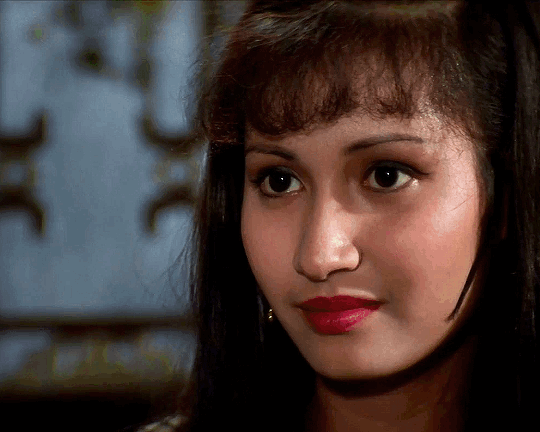


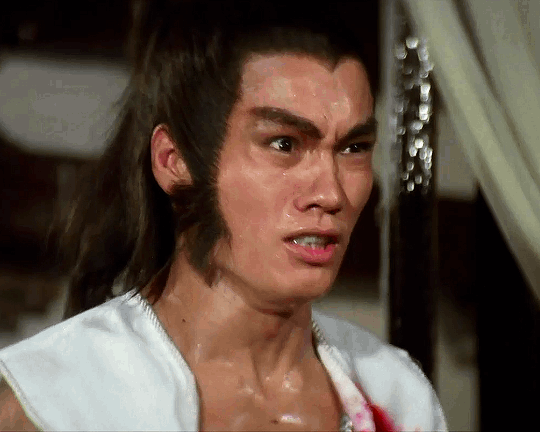

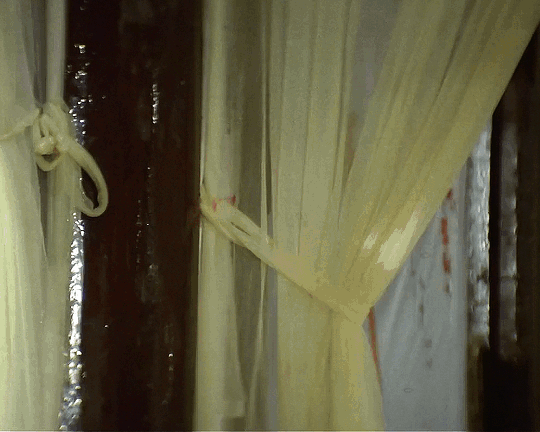
sword beneath the flowers • 花下劍
Five Elements Ninjas (五遁忍術) dir. Chang Cheh, 1982
#five elements ninjas#五遁忍術#chang cheh#worldcinemaedit#chen pei hsi#chen pei-hsi#shaw brothers#Lo mang#wuxia#blood tw#hong kong movie#ellisgifs#filmgifs#THIS IS CINEMA#queue
114 notes
·
View notes
Text

Five Element Ninjas (1982)
#Five Element Ninjas#Chinese Super Ninjas#Shaw Brothers#Chang Cheh#Ninjas#Ninja#Kung fu cinema#Kung fu movies#Kung fu#Martial arts#Martial arts movies
394 notes
·
View notes
Photo
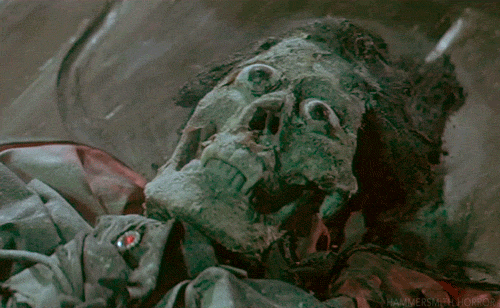
The Legend of the 7 Golden Vampires | 1974
#The Legend of the 7 Golden Vampires#Hammer Horror#Shaw Brothers#Roy Ward Baker#Chang Cheh#Dracula#martial arts movie#smoke#vampire#highaf#skull#dead#eyes#practical effects#Hammersmith Horror#horror
247 notes
·
View notes
Text
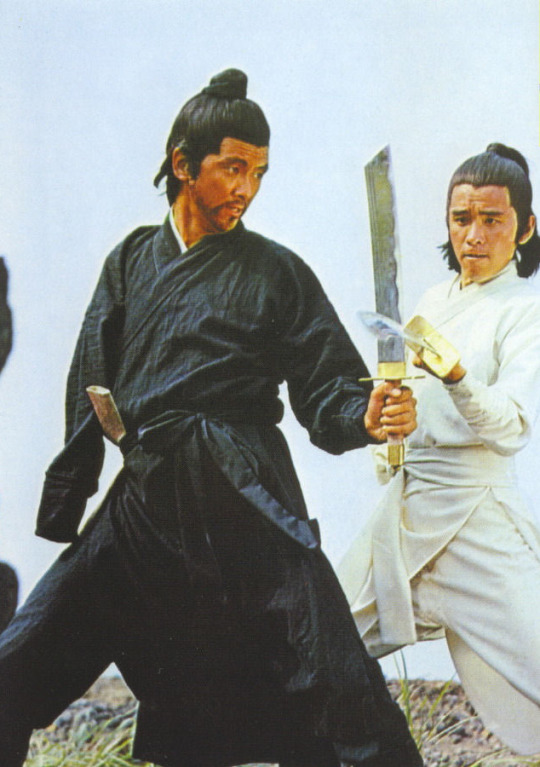
Jimmy Wang Yu as Fang Kang, The One-Armed Swordsman (1967).
This film was a huge hit for the Shaw Brothers studio and director Chang Cheh, and launched Wang into superstardom. He returned as Fang Kong in the sequel, Return of the One-Armed Swordsman (1969). This soon lead to Wang playing various one-armed swordsmen and one-armed boxers in films for several years.
24 notes
·
View notes
Text

Shaolin Temple (1976) a.k.a. Five Shaolin Masters
7 notes
·
View notes
Photo

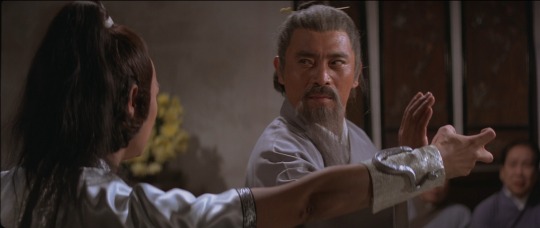
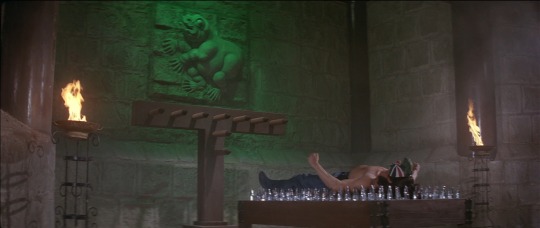



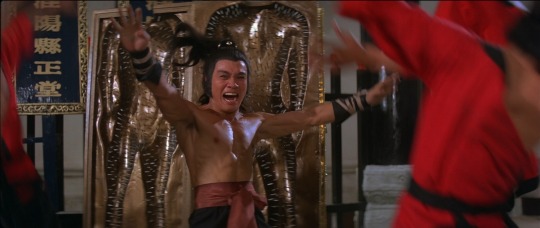
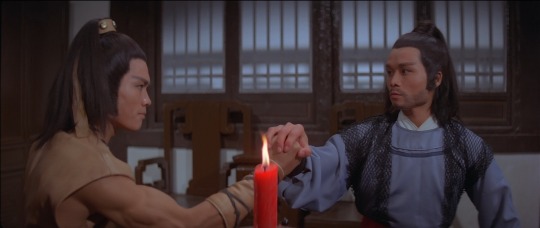


The Five Venoms (1978)
#The Five Venoms#five deadly venoms#chang cheh#shaw brothers#chiang sheng#phillip kwok#sun chien#lu feng#lo meng#wai pak#johnny wang lung-wei#martial arts movies#kung fu movies#70s movies#hong kong movies#venom mob
42 notes
·
View notes
Photo

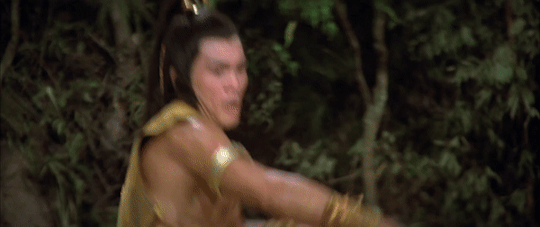
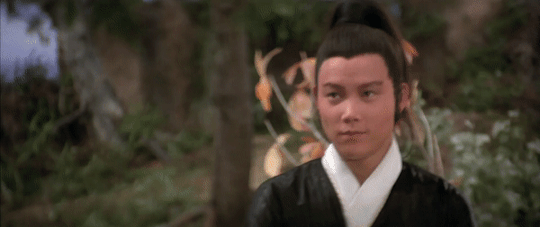
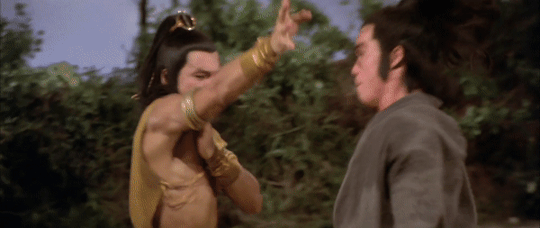

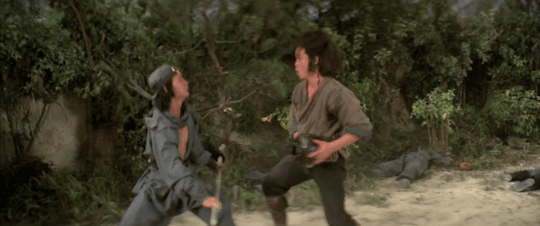




The Kid with the Golden Arm 金臂童 (1979) dir. Chang Cheh 張徹
20 notes
·
View notes
Text
New article alert, this time exploring the queer undertones of one of my favourite wuxia films, The New One-Armed Swordsman
#shaw brothers#the new one armed swordsman#Chang cheh#ti lung#David Chiang#martial arts cinema#my writing
2 notes
·
View notes
Text
Movie Review | Five Deadly Venoms (Chang, 1978)

This is considered one of the most iconic Shaw Brothers movies I saw, and was certainly one of the first I ever saw, and upon revisiting this, I find it a little odd that it’s as beloved as it is. I am not knocking the movie’s quality, but instead noting the oddness of its narrative. I think when I first saw it, I didn’t really have a frame of reference for these things, so I kind of assumed this was pretty standard in such respects. The fact that it takes a mystery structure and withholds genre thrills didn’t stick out to me as unusual as it does now.
And when I first saw it, I assumed all classic Kung Fu movies were as dramatically rigid as this one, characters spouting exposition and declaring their current or changing allegiances either stoically or mischievously, depending on his sympathetic we’re supposed to find them. But having seen some of Chang Cheh’s earlier movies, which are more heartfelt and have blood running through their veins, this quality in his later films comes into focus as a more deliberate choice. These are less like stories you’re supposed to be swept up in and more like medieval tapestries that take on new meaning when viewed from different angles, not unlike the way the narrative shifts with different reveals.
The emphasis is on medieval. After a low key start, at around the midpoint we’re hit with a bunch of medieval instruments of torture and death as characters are tried in a kangaroo court. A coat of nails that resembles an iron maiden. Throat hooks and “brain pins” for discreet killing. If you were getting antsy early on about a lack of blood and guts, this stuff makes up for it.
And obviously we get the amazing fights with the titular Venoms, each of whom have distinct fighting styles (and cool masks to boot, although they sadly don’t wear them all that much). But the movie doesn’t overwhelm us with them, but instead metes out their abilities at key moments. As a result, the legendary final scene, which pulls out some last minute plot twists and throws in some off kilter editing to complement some of the styles, pops all the more.
I do not think this is the best Venom Mob film. Crippled Avengers and Five Elements Ninjas offer more bang for your buck, and the former might be my pick for the best choreographed martial arts movie I’ve ever seen. But as a transitional work towards the purer Kung Fu storytelling of those movies, I find it even more fascinating with my latest viewing.
3 notes
·
View notes
Text
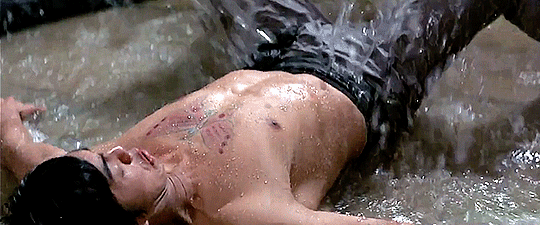
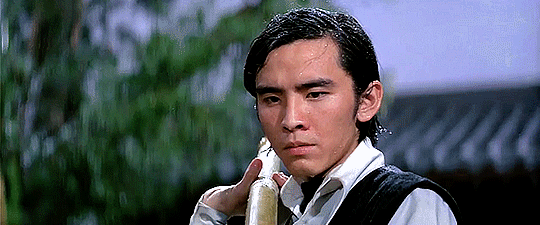
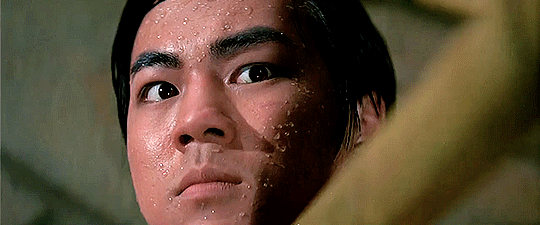
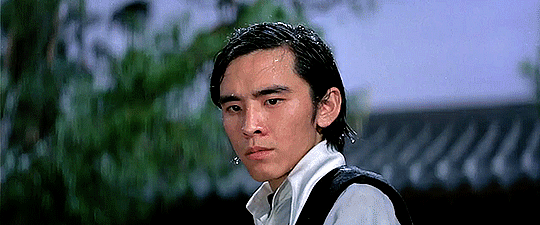
why did chang cheh film it like this
#may i submit exhibit 1039944030 into evidence of chang cheh's weird homoeroticism that he denies#shaw brothers#chang cheh#david chiang#ti lung#kung fu movies#kungfumovieedit#my stuff#大决斗
15 notes
·
View notes
Text
Is the Brotherly Love in Martial Arts Films Homoerotic?
Usually I don’t make newspapers’ reposts, but this case deserves the exception.

The idea, no doubt, viable, taking into account that the concept of qing (情), often characterizing the ideal relationship between male Wuxia characters, by the Ming era acquired some implicit homoerotic connotation. This hard-to-translate, elusive notion has evolved over the millennia from an abstract virtue or a natural quality to an intimate affection, and eventually became a partial substitute for the “traditional” concept of love. In later eras, the use of qing to denote same-sex relationships is not uncommon. This concept is all the more convenient since it allows a veiled designation of a tongzhi living context in postsocialist period. Nowadays, qing is part of the gay-related slang (see, for instance, 基情).
Although Wuxia novels give an idea of all the richness of the interactions between vigorous wu and refined wen masculinity, they maintain an ambivalent representation of homosexuality for centuries.
On the one hand, same-sex relationships are often depicted as evidence of the perversity inherent in villains. From time to time, homosexuality (or queer-feminization) in Wuxia literature acquires a mystical connotation, testifying to the “non-human” nature of the characters or the vicious transformation due to the pursuit of ambitious goals (for ex., omnipotence) and adherence to “top secret” Yin techniques. In such cases, the presentation is usually explicit or mediated by hints that leave the reader in no doubt.
On the other hand, same-sex partnerships can take the form of sublime and long-lasting romantic friendships when it comes to male protagonists.

In such relationships, the older character most often complies with the norms of Confucian moral code, acting as a wise mentor, patron and protector for the younger and\or less experienced one who takes the position of apprentice and junior companion. This classic distribution of roles is consonant with the Plato’s model.
What is curious…
Ultimately, Kwan concludes that Confucian attitudes are probably the reason for the absence of discussions of sexual identity in Chinese films.
It’s a complex ethnographic, sociological and metaphysical question:
Since when Confucianism has become a synonym for Chinese culture?
In fact, not so long ago as it is depicted. And moreover, Confucianism was never its basis.
How much the mainstream understanding of Confucianism differs from the content of the primary source is another topic for a decent thesis.)
Noteworthy article by Richard James Havis
Hong Kong was a conservative place back in the 1990s, so it’s surprising that gender identity played such a big part in its film scene.
Spurred by Brigitte Lin Ching-hsia’s incredible success as the cross-dressing hermaphrodite sorceress in Swordsman II, screens were filled with women playing masculine roles, a phenomenon that permeated the wider cultural scene, especially in advertising.
The mid-1990s also saw Hong Kong’s first commercial gay film, notable local director and distributor Shu Kei’s A Queer Story, which featured Jordan Chan Siu-chun and George Lam Tsz-cheung in a homosexual relationship.
“Recently, Hong Kong attitudes have been shifting – if only slightly – and local filmmakers are becoming bolder in their embrace of homosexual themes,” this journalist wrote in 1997.
View On WordPress
#ancient China#Chang Cheh#Chinese martial arts#Jianghu#masculinity#Rivers and Lakes#Romance of the Three Kingdoms#Wuxia#Yi Qi#sworn brothers#Three Kingdoms#江湖#義氣#confucianism#qing#情#lgbtq
10 notes
·
View notes
Text
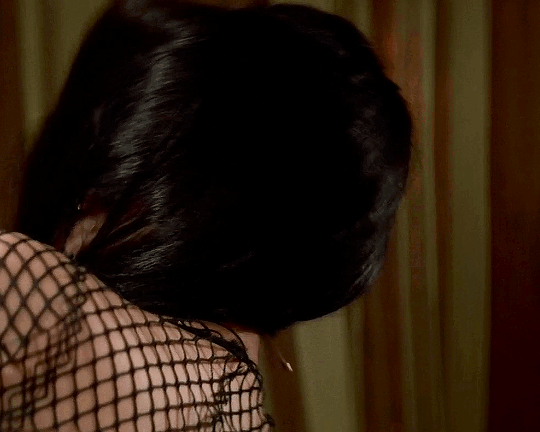
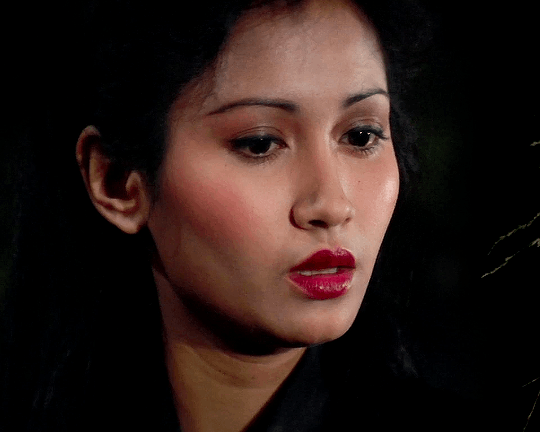

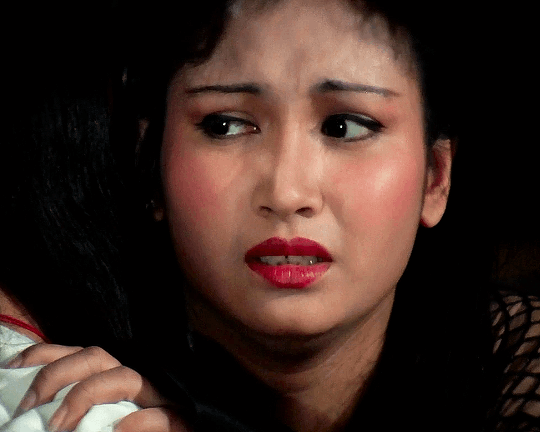
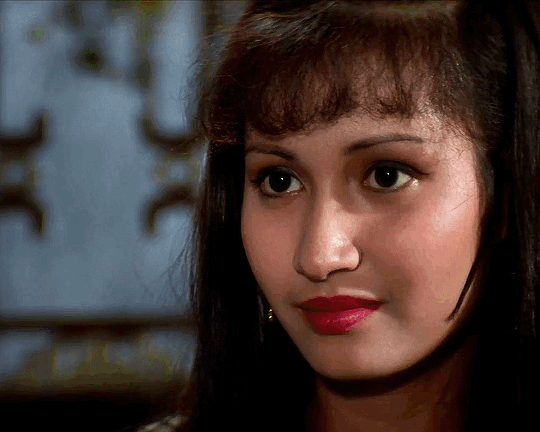
Chen Pei-Hsi as Junko
Five Elements Ninjas (五遁忍術) dir. Chang Cheh, 1982
#five elements ninjas#五遁忍術#chang cheh#worldcinemaedit#chen pei hsi#chen pei-hsi#shaw brothers#filmgifs#ladiesofcinema#wuxia#hong kong movie#ellisgifs#WHAT A FILM
59 notes
·
View notes
Photo
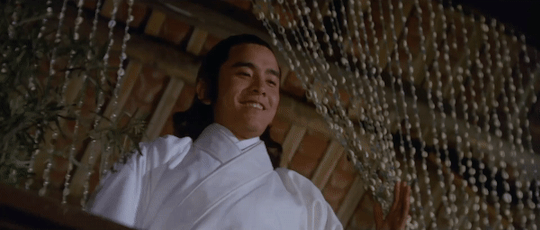


David Chiang in Magnificent Wanderers (1977)
#He is the definition of pretty#His smile makes me melt#David Chiang#Magnificent Wanderers#Venom Mob#b tier venom#Shaw Brothers#Chang Cheh
7 notes
·
View notes
Photo
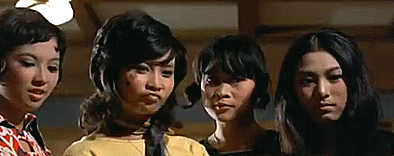
50 Years, 50 Gifs
Four Riders | 四騎士 (1972), dir. Chang Cheh
1/50
3 notes
·
View notes
Photo

Vengeance! (1970)
20 notes
·
View notes
Text


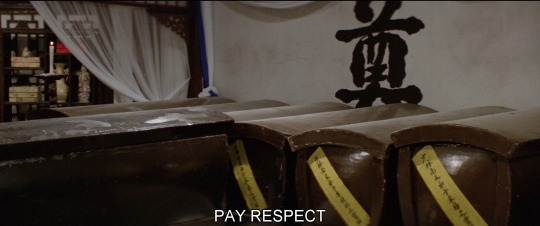
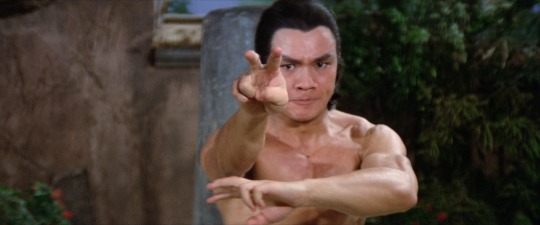
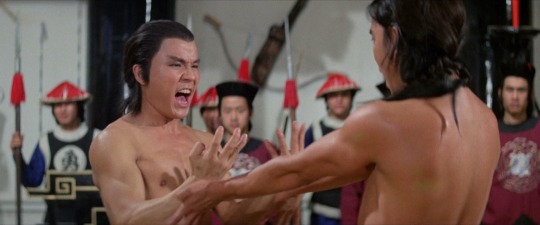
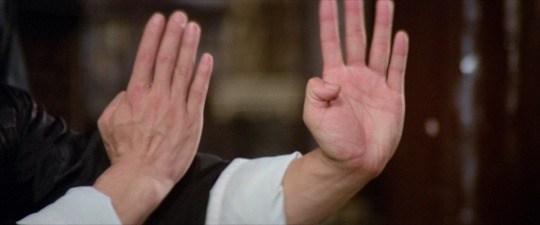

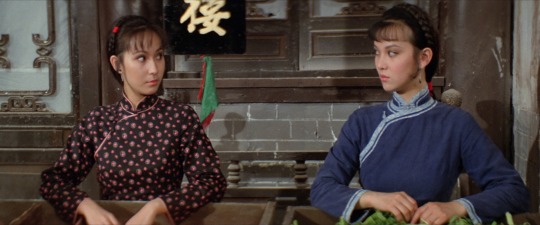

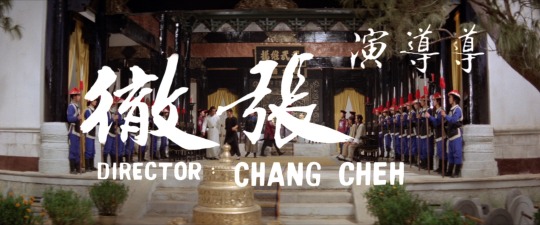


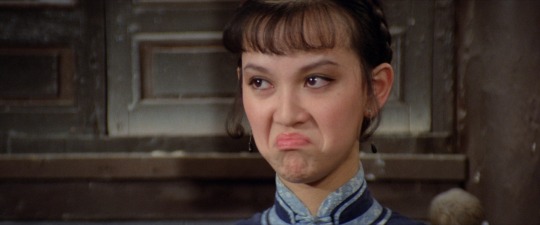
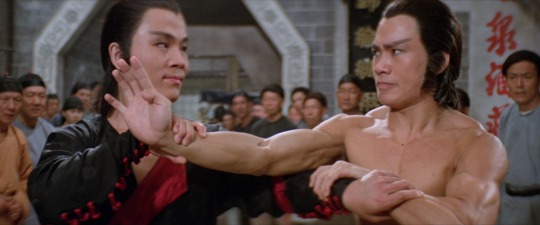
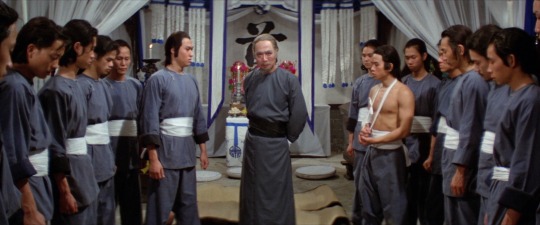

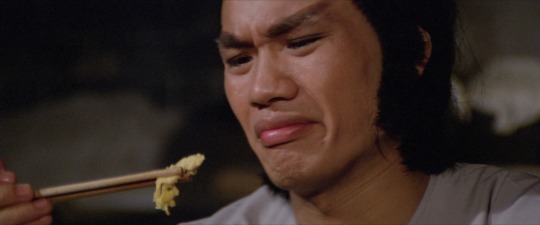
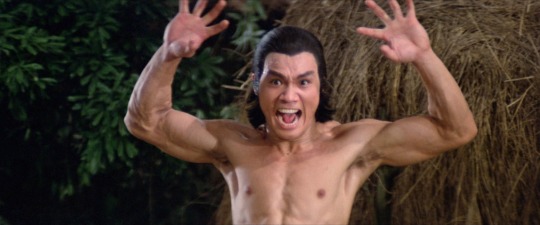
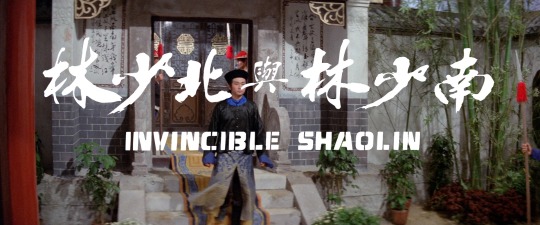
Invincible Shaolin (1978)
#film#film review#movie review#shaw brothers#martial arts#Invincible Shaolin#Chang Cheh#shaolin kung fu#venom mob#lo meng#sun chien#Chiang Sheng#lu feng#Phillip Kwok Chun-Fung#Wai Pak#Johnny Wang Lung-Wei
9 notes
·
View notes